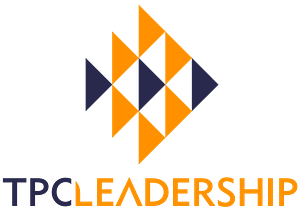From our experiences over the last decade as executive coaches and trainers of coaches we know that receiving useful and continuous feedback on our practice can be one of the most important development inputs. This focused feedback is key if we are to continually to develop and build our self-awareness and depth and breadth of practice; however, this can prove challenging.
Firstly, it relies on our willingness to be vulnerable and to be self-aware. Becoming aware of who we are now as a coach takes courage, as often we need to check-in with how this fits with how we see ourselves. So in order to really understand ourselves as a coach we need to let our defences down. By doing this, not only can we develop our self-awareness, we can start to build our self-regard as a coach, which Bar-On describes as “the ability to look at and understand oneself, respect and accept oneself, accepting one’s perceived positive and negative aspects as well as one’s limitations and possibilities.” Building our self-regard is a key development step if we are to connect with our authentic self as a coach as well as enabling us to leverage the required challenge in the conversation to add value and insight into our coachee’s thinking.
Secondly, if you are an internal or external coach, I am sure you will agree that obtaining objective and credible feedback from your coachees can prove difficult. It may feel like a conflict, as they are grateful for the relationship and support provided by the coaching. They are involved in the coaching dialogue so may be unaware of the interventions and skills of the coach (as in the moment this is outside of their awareness). Finally, it is likely they will not be coaches themselves and therefore do not understand the skills and qualities necessary for effective coaching.
So how can we make feedback for developing coaches effective when they are relying on their coachees? From our experiences and research on feedback processes, we now ensure the following conditions are implemented to make this effective:
- The coach (receiver) and the coachee (rater) are prepared and fully understand the feedback process, boundaries and objectives for the feedback.
- A structured feedback tool based on a coaching model is used to enable rater(s) to provide objective and credible developmental feedback for the coach.
- The receiver has also set personal goals for undertaking the feedback process, as this will enable them to be in a receptive state to interpret the feedback.
- A developmental relationship such as an experienced coach supervisor supports the feedback process and debriefs the receiver enabling them to interpret the results. This interpersonal relationship built on the foundations of trust and rapport will allow the receiver to be vulnerable and develop awareness of their current coaching practice including strengths and areas of focus.
- The feedback report contains clear evidence of specific behaviours and the receiver is supported to develop an action plan.
- There is follow-up and additional coaching sessions to enable the receiver to close the “knowing and doing gap” to really make a shift in their coaching practice.
Providing structured and impactful feedback for training coaches has been a focus for us over the past eighteen months and through this process we have now developed “The Complete Coach,” an on-line feedback tool which enables the coach and up to six coachees to complete an on-line questionnaire (180 degree feedback). The results are collated into a detailed report looking at key dimensions of what it means to be an effective coach. It goes beyond basic coaching skills to advanced skills, attitudes, beliefs and the core identity and understanding of a coach. The report has provided training coaches with a rich and deep exploration of each facet of coach development, which makes it both deep and complete in its diagnosis.
We are passionate about enabling coaches to become excellent practitioners and for this reason we’ll continue to refine and enhance The Complete Coach tool and feedback process.
References / Further reading
- McDowell, A. (2012). Using feedback in Coaching
- Centre for Creative Leadership. (2008) 360 Degree Feedback Best Practices to ensure Impact





